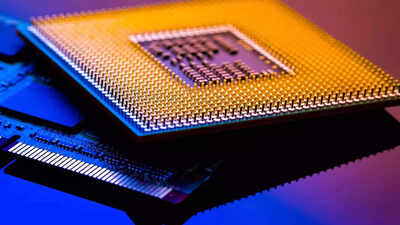Key Takeaways
- Four men indicted for plotting illegal export of restricted Nvidia chips to China and Hong Kong
- Alleged scheme bypassed US export controls designed to limit AI and supercomputing technology access
- Defendants face conspiracy charges with maximum 20-year prison sentences
Four individuals, including a recently appointed AI startup CTO, face federal criminal charges for allegedly orchestrating a multi-million dollar scheme to illegally export restricted Nvidia chips to China and Hong Kong. The operation bypassed strict US export controls designed to limit access to advanced AI and supercomputing technology.
According to court documents cited by CNBC, the defendants routed highly controlled chips through Malaysia and Thailand to evade detection. Prosecutors confirmed the group failed to obtain required licenses from the Commerce Department for these exports.
The Defendants and Their Roles
Brian Curtis Raymond, 46, of Huntsville, Alabama, owned Bitworks, a technology products distributor licensed to sell Nvidia GPUs. Just last week, Raymond was announced as chief technology officer of Corvex, a Virginia-based AI cloud company planning to go public. Following the indictment, Corvex rescinded his job offer and confirmed he was never an employee, only a consultant transitioning to a full-time role.
The three other defendants—Mathew Ho (also known as Hon Ning Ho), Jing Chen (Harry Chen), and Cham Li (Tony Li)—were all born in China or Hong Kong.
Ho, 34, a US citizen living in Florida, served as registered agent for Janford Realtor—a Tampa company that prosecutors say never conducted real estate transactions but instead facilitated illegal chip exports.
Charges and Potential Penalties
All four defendants face conspiracy charges for violating the Export Control Reform Act of 2018. Raymond faces additional charges including money laundering related to over $3.4 million in wire transfers, smuggling, and multiple export control violations.
If convicted, each defendant faces a maximum sentence of 20 years in prison. The alleged scheme involved submitting false documents about shipment consignees, chip values, and export licenses.
Nvidia Chips Involved in Illegal Export
According to the US Attorney’s Office for the Middle District of Florida, 400 Nvidia A100 chips were successfully exported to China between October 2024 and January 2025 in two separate shipments. Law enforcement disrupted two additional attempted exports involving:
- 10 Hewlett Packard Enterprise supercomputers with Nvidia H100 GPUs
- 50 separate Nvidia H200 GPUs
The indictment emphasizes that China “is rapidly developing exascale supercomputing capabilities and has announced its intent to be the world leader in AI by 2030.” Prosecutors state these advanced chips enable capabilities being used for military modernization and weapons design and testing, including weapons of mass destruction.




